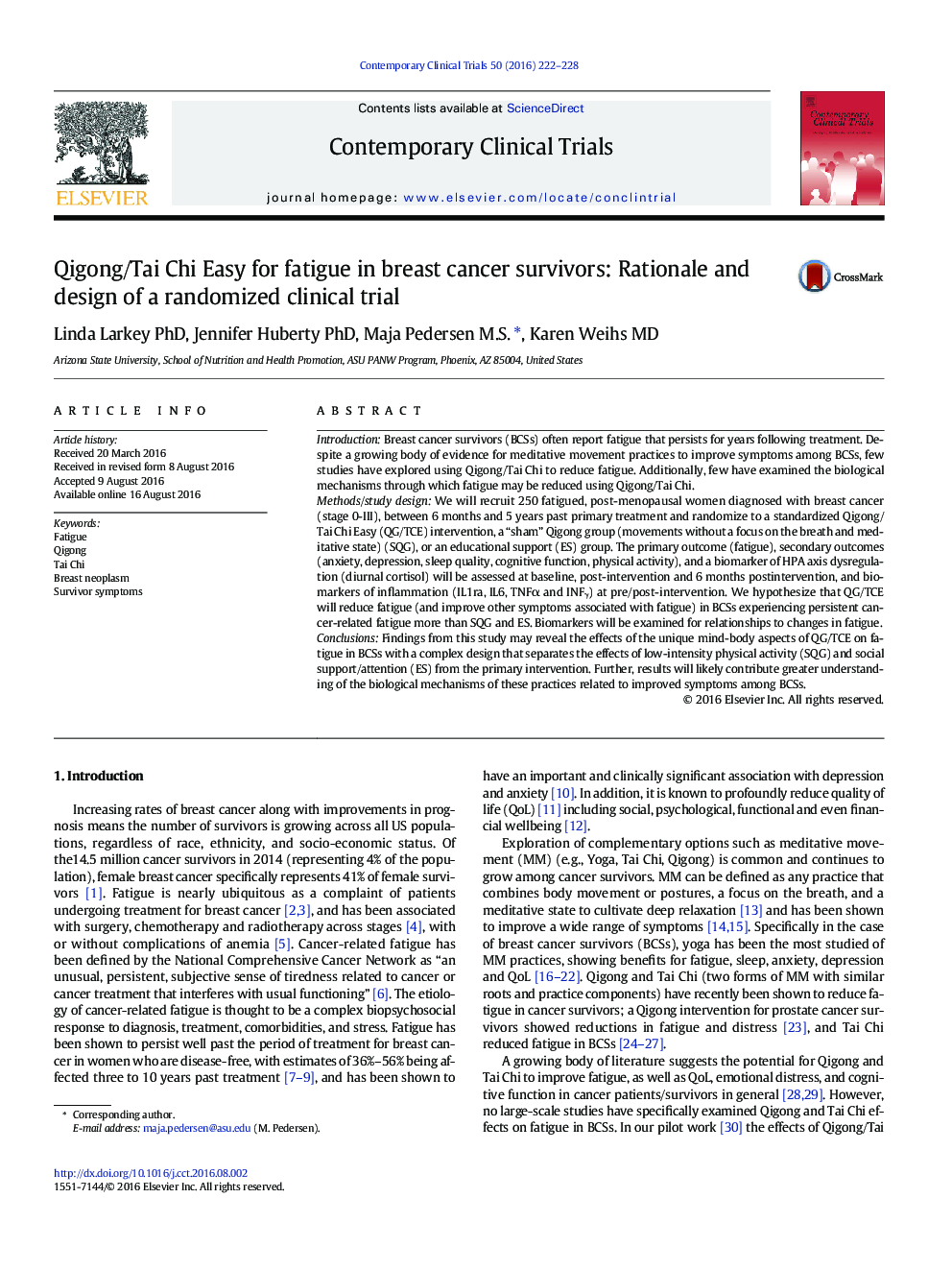| کد مقاله | کد نشریه | سال انتشار | مقاله انگلیسی | نسخه تمام متن |
|---|---|---|---|---|
| 3462611 | 1596426 | 2016 | 7 صفحه PDF | دانلود رایگان |
IntroductionBreast cancer survivors (BCSs) often report fatigue that persists for years following treatment. Despite a growing body of evidence for meditative movement practices to improve symptoms among BCSs, few studies have explored using Qigong/Tai Chi to reduce fatigue. Additionally, few have examined the biological mechanisms through which fatigue may be reduced using Qigong/Tai Chi.Methods/study designWe will recruit 250 fatigued, post-menopausal women diagnosed with breast cancer (stage 0-III), between 6 months and 5 years past primary treatment and randomize to a standardized Qigong/Tai Chi Easy (QG/TCE) intervention, a “sham” Qigong group (movements without a focus on the breath and meditative state) (SQG), or an educational support (ES) group. The primary outcome (fatigue), secondary outcomes (anxiety, depression, sleep quality, cognitive function, physical activity), and a biomarker of HPA axis dysregulation (diurnal cortisol) will be assessed at baseline, post-intervention and 6 months postintervention, and biomarkers of inflammation (IL1ra, IL6, TNFα and INFᵧ) at pre/post-intervention. We hypothesize that QG/TCE will reduce fatigue (and improve other symptoms associated with fatigue) in BCSs experiencing persistent cancer-related fatigue more than SQG and ES. Biomarkers will be examined for relationships to changes in fatigue.ConclusionsFindings from this study may reveal the effects of the unique mind-body aspects of QG/TCE on fatigue in BCSs with a complex design that separates the effects of low-intensity physical activity (SQG) and social support/attention (ES) from the primary intervention. Further, results will likely contribute greater understanding of the biological mechanisms of these practices related to improved symptoms among BCSs.
Journal: Contemporary Clinical Trials - Volume 50, September 2016, Pages 222–228
